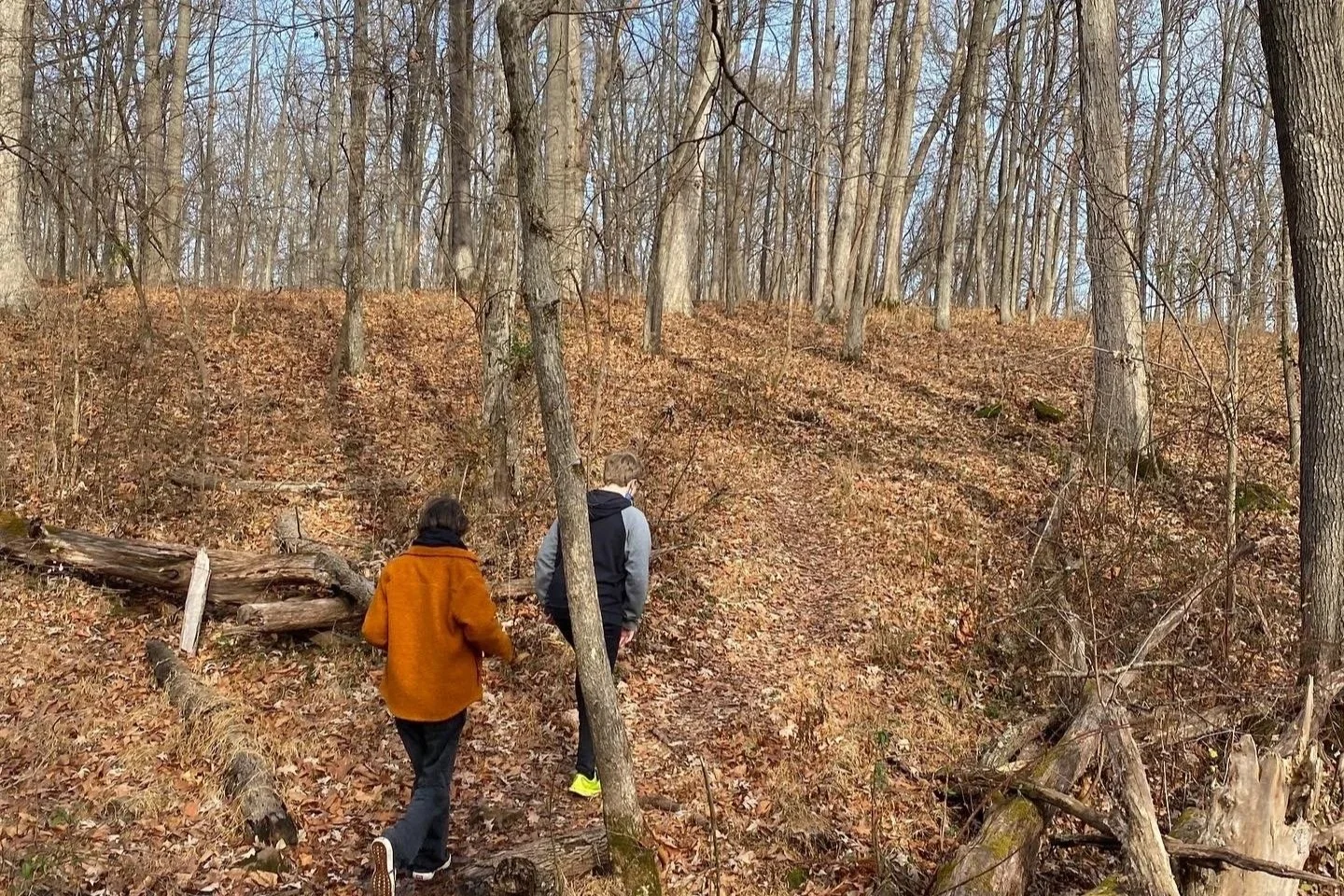The Unexpected Grief of Letting Go of School
When families leave traditional school, they often expect freedom and relief. But what many don’t anticipate is grief. It shows up in quiet, surprising ways—for parents, for kids, and for whole families stepping off the well-worn path.
What they are grieving is what John Holt and Ivan Illich called schoolishness—the mindset that tells us education only happens in classrooms, that grades measure worth, and that life should follow the timetable of classes and diplomas. More recently, Akilah S. Richards has expanded the idea to describe how this “school mindset” shapes our lives even beyond classrooms.
Letting go of schoolishness can feel like mourning a lost tribe.
Outside the Tribe: Losing School Belonging
One mom remembers sitting at a soccer game, listening to the other parents trade stories about homework loads and upcoming tests. Her son had just left middle school after months of anxiety, and she suddenly realized she had nothing to add.
“I used to be part of that conversation,” she thought. “Now I’m not even in the same world.”
That moment hit like a wave of grief. Leaving school doesn’t just change your child’s schedule—it shifts your place in the parent tribe. And the reminders come regularly, sometimes painfully: the flood of “first day of school” pictures each fall, the graduation photos in the spring, the casual parent small talk about teachers and tests. Each cycle stirs the awareness of being on the outside, of walking a different road.
Months later, she still sometimes wonders if the exile was worth it, even as her son grows healthier.
Parents: Grieving the School Mindset
Another dad shared how he used to picture his daughter’s future: a row of honor cords draped across her graduation gown, scholarships lined up, proud relatives clapping in the bleachers.
When she chose to leave high school to pursue her art, he supported her—but quietly mourned the dream.
“I didn’t realize how much of my own story I was trying to live through hers,” he admitted later.
He’s proud of her now, but he still feels a pang when friends post their kids’ graduation photos online. For parents, the grief often lies in letting go of those vicarious futures, the tidy narratives that reassure us we did everything “right.”
Kids: Grieving Being Different Without School
Young people grieve, too. One teen explained it this way:
“All my old friends talk about their teachers and their classes. When people ask me what grade I’m in, I don’t even know how to answer. I just wish I could be… normal.”
Even when school was painful, kids may miss the sameness, the cultural rituals—the locker decorations, the yearbook photos, even the homework complaints. In a society that equates compliance with belonging, stepping out can feel lonely. For some kids, the loneliness passes; for others, it lingers, and they ask to go back.
What Grief Looks Like When Leaving School
Sometimes grief shows up as tears. Other times it’s doubt, nostalgia, or frustration. Parents second-guess. Kids wish for “normal.” Families wonder if they made the right choice.
These aren’t failures. They’re signs of mourning. Families aren’t just walking away from an institution—they’re grieving what it promised, what it demanded, and what it cost.
From Grief to Growth Beyond the School Mindset
The beauty of grief is that it clears space for something new.
That mom at the soccer field eventually found other families who had made the same leap. That dad discovered joy in watching his daughter’s art flourish in ways a transcript never could. That teen who once wished to be “normal” began introducing herself by her passions: “I’m into robotics and digital art right now.”
But not every family lands in such clarity. Some find the grief too heavy—the pull of normalcy too strong—and they choose to return to school. That choice isn’t a failure; it’s simply another path. For many, the experience of stepping outside, even briefly, leaves a permanent mark. They carry a new lens into the system, a deeper awareness that learning and worth aren’t measured only by grades and diplomas.
And grief doesn’t move in a straight line. It circles back, stirred by familiar cultural rituals: the “first day of school” photos each fall, the report cards and prom pictures, the graduation posts that flood social media every May. These moments can reopen the ache of difference. Families navigate it differently. Some lean further into freedom, others step back toward the familiar.
Either way, the process reshapes how they see learning—and themselves.
✨ Leaving schoolishness isn’t just about education. It’s a rite of passage. It carries grief, sometimes joy, sometimes doubt. And no matter the direction families ultimately take, that grief becomes part of their story: proof that stepping off the well-worn path changes you, even if you circle back.
At Embark Center for Self-Directed Education, we’ve seen how powerful it is when families move through this grief together. Shared stories and community don’t erase the challenges—but they remind us that no one has to walk the path alone.
👉 Curious about how community can support your family’s journey? Learn more about Embark Center and the families walking this path together.

